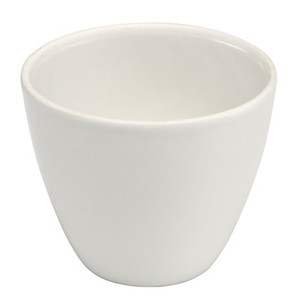Porcelain
Porcelain labware is widely used in chemistry applications. Porcelain has excellent resistance to all reagents except hydrofluoric acid and is highly resistant to thermal shock while having a very low coefficient of expansion.
The average coefficient of expansion from 20 to 200 °C is 3.56 x 10-5 gradually increasing to 4.69 x 10-5 at 1000 °C. To prevent thermal stress cracks on porcelainware do not exceed a heating/cooling rate of 200 °C per hour.
To prolong the life of porcelain products:
- Follow gradual heating/cooling rates
- Use an oven or hot plate and an intermediate step when quicker heating/cooling rates are required
- Avoid contact of heated ware with a cold surface
- Carefully inspect labware prior to each use and do not use any product that appears defective.





